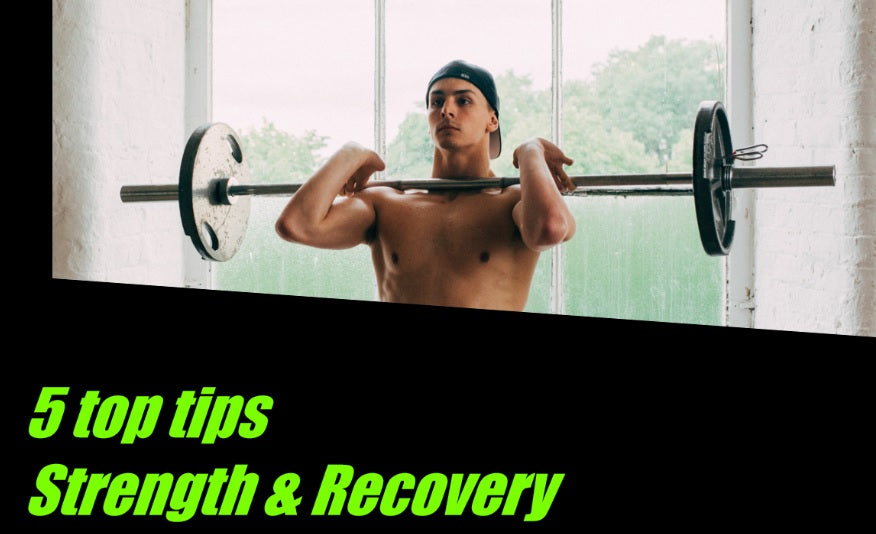
Top 5 tips for strength and recovery
Share
If you've worked out a lot this year, you've likely noticed that your muscles feel drained and exhausted after a workout. Thankfully, you can take a few steps to minimize this problem. For example, start your training schedule early in the morning and go to bed early at night. In addition, it's recommended that you get at least seven hours of sleep each night - and even more if you've worked out for several days.
TOP TIP 1 - To build muscle, you need to challenge your muscles. This means lifting heavier weight and working them harder than you ever have. If you're over 50, you should use heavier weights, add a small plate to a bar, or move the pin on a machine to a higher weight setting. Try to do one more repetition with a certain weight and see if you can increase the weight or set of repetitions.
TOP TIP 2 - Eating high-protein foods can help repair sore muscles. These foods include meat, eggs, and dairy. For more effective recovery, eat pineapple, a food rich in bromelain, which is a natural anti-inflammatory. This food may also relieve bruises and sprains. Additionally, fish oil may reduce inflammation and repair damaged muscles. These are just a few of the many food tips for strength and recovery.
TOP TIP 3 - Protein is one of the most important nutrients for recovering muscles. Make sure to eat a diet full of lean protein, which triggers growth factors in the body between workouts. You should also drink plenty of water every day. Also, make sure you get enough sleep. When you're awake, your body needs time to repair itself. If you don't get enough sleep, you're setting yourself up for muscle injury.

TOP TIP 4 - While working out is essential, you shouldn't overdo it. Overworking your muscles can lead to injuries, so recovery is the key to achieving peak fitness. Getting adequate rest and recovery will speed up muscle growth and help you improve your overall fitness. Make sure you take enough time to cool down after every workout. After all, your muscles need a chance to adjust to the stress of rigorous training. Your body will send you signals and tell you exactly how to recover.
TOP TIP 5 - Exercise requires your body to recover from overuse. The body is constantly being damaged by exercise. The body reacts by triggering the immune system to repair the damage it suffered. In return, your muscles become slightly stronger, and your immune system is more likely to fight off infection. Therefore, it's imperative to take care of yourself after a workout to ensure the best recovery possible. When you exercise, you'll likely have some sore muscles that need recovery. Using the right techniques is essential to speed up this process.






